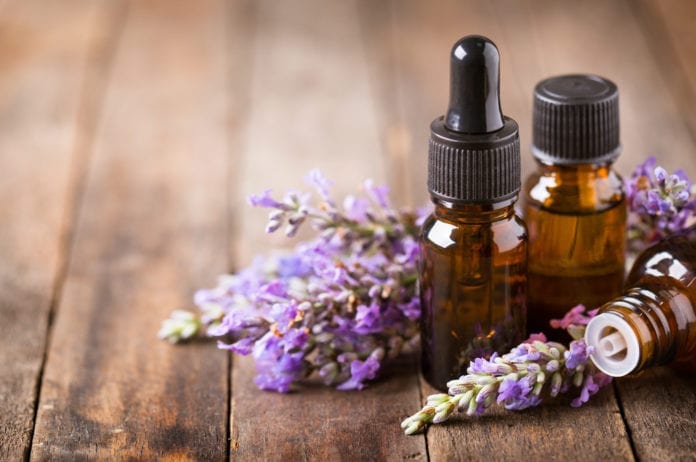Breathe in, breathe out. Breathing exercises are one of the best things we can do for ourselves. And add aromatherapy to the mix? Heaven!
If you haven’t heard of aromatherapy by now, you must be living under a rock – but it’s okay, you’re here now. Aromatherapy is one of the most beneficial holistic healing treatments you can partake in. This treatment uses natural plant extracts to improve your health and wellbeing. This is based on using essential oils medicinally to improve your body, mind, and soul. Your physical and emotional health are greatly improved when you tap into certain aromas.
The National Association for Holistic Aromatherapy (NAHA) defines aromatherapy as “the therapeutic application or the medicinal use of aromatic substances (essential oils) for holistic healing.
This range of traditional, alternative, complementary therapy aids your health in a variety of ways. A range of essential oils has been found to have various degrees of antimicrobial activity and are believed to have antiviral, nematicidal, antifungal, insecticidal, and antioxidant properties. Aromatherapy can also be used in a multitude of ways: massage, topical applications, and inhalation.
Aromatherapy has been gaining in popularity over recent decades, but the science of it dates back 6,000 years. People made the correlation that certain smells just make you feel good (hence, perfume and cologne).
So, how does one start an aromatherapy adventure? As mentioned, it can be utilized in a variety of ways, but the most popular is inhalation. With this method, essential oils are evaporated into the air via a diffuser, spray, steam bath, or sniffing from the oil source.
Amazingly, this can help with respiratory disinfection, decongestion and help with psychological benefits. The smells stimulate your olfactory system and affect your limbic system, which is linked to emotions, heart rate, blood pressure, breathing, memory, stress, and hormone balance. In this way, essential oils can have a delicate, yet holistic effect on your entire body.
You can also apply aromatherapy oils topically, generally through massage oils or bath and skincare products. Massaging it in can boost your circulation and any hair follicles you have will absorb it. It can cure diseases, rashes, illnesses – the list goes on!
It has been shown to reduce:
- Nausea
- Pain and body aches
- Anxiety, agitation, stress, and depression
- Fatigue and insomnia
- Muscular aches
- Headaches
- Circulatory problems
- Menstrual problems
- Menopausal problems
- Alopecia, or hair loss
And there are so many different oils that produce different effects, such as:
- Basil Essential Oil:
Used to sharpen concentration and alleviate some of the symptoms of depression. It may relieve headaches and migraines. It should be avoided during pregnancy.
- Bergamot Essential Oil:
Said to be useful for the urinary tract and digestive tract. When combined with eucalyptus oil it may help relieve skin problems, including those caused by stress and chickenpox.
- Rosemary Essential Oil:
May benefit the nervous and circulatory systems.
- Black pepper Essential Oil:
Commonly used for stimulating circulation, muscular aches and pains, and bruises. Combined with ginger essential oil, it is used to reduce arthritis pain and improve flexibility.
- Chamomile Essential Oil:
Can treat eczema.
- Citronella Essential Oil:
A relative of lemongrass and acts as an insect repellent.
- Clove Essential Oil:
Is a topical analgesic, or painkiller, that is commonly used for toothache. It is also used as an antispasmodic antiemetic, for preventing vomiting and nausea, and as a carminative, preventing gas in the gut. It has antimicrobial, antioxidant, and antifungal properties.
- Eucalyptus Essential Oil:
Can help relieve the airways during a cold or flu. It is often combined with peppermint. Many people are allergic to eucalyptus, so care should be taken.
- Geranium Essential Oil:
Can be used for skin problems, reduce stress, and as a mosquito repellant.
- Jasmine Essential Oil:
Has been described as an aphrodisiac. While scientific evidence is lacking, research has shown that the odor of jasmine increases beta waves, which are linked to alertness. As a stimulant, it might increase penile blood flow.
- Lavender Essential Oil:
Used as an antiseptic for minor cuts and burns and to enhance relaxation and sleep. It is said to relieve headache and migraine symptoms.
- Lemon Essential Oil:
Improves mood, and helps relieve the symptoms of stress and depression.
- Rosemary Essential Oil:
May promote hair growth, boost memory, prevent muscle spasms, and support the circulatory and nervous systems.
- Sandalwood Essential Oil:
Has some aphrodisiac qualities.
- Tea Tree Essential Oil:
Contains antimicrobial, antiseptic, and disinfectant qualities. It is commonly used in shampoos and skincare products, to treat acne, burns, and bites. It features mouth rinses but it should never be swallowed, as it is toxic.
- Thyme Essential Oil:
Reduces fatigue, nervousness, and stress.
- Yarrow Essential Oil:
Used to treat symptoms of cold and flu, and to help reduce joint inflammation.
Conclusion
If you weren’t aware of the many positive benefits of aromatherapy, now you have a bit of knowledge! There are a variety of ways to purchase aromatherapy oils either online or at a local retailer. Just tap your old friend Google for a few recommendations.


